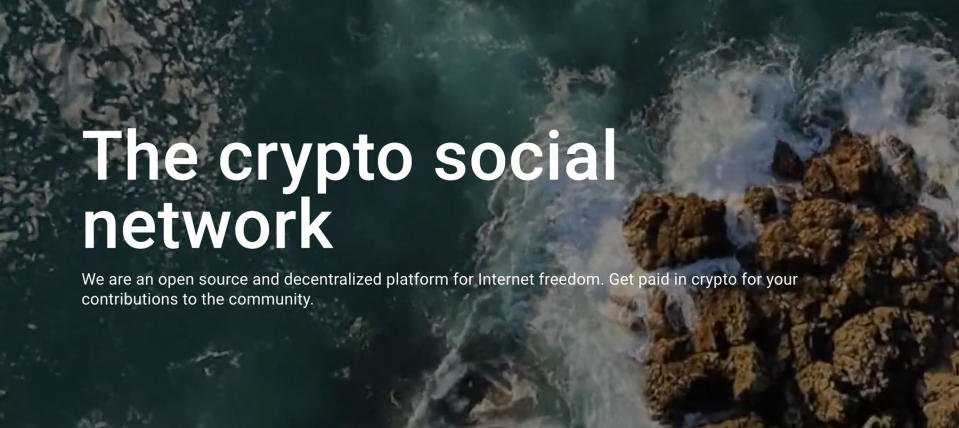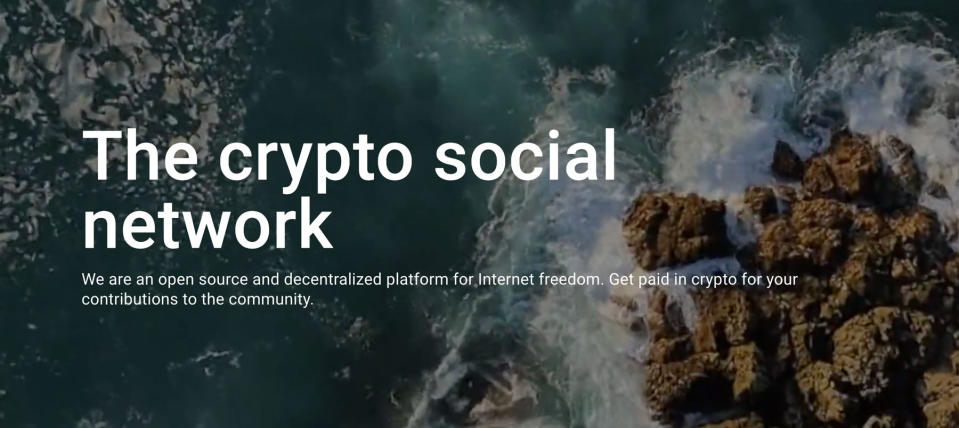I believe in free speech, but Minds makes me queasy
The lack of moderation is a blessing for some of its users.
The email landed in my inbox just as the winds of bad press began to whip up around Mark Zuckerberg's ankles. It asked if I wanted to try Minds, the new blockchain-based social network, in the wake of #DeleteFacebook. The site is a social media platform that claims to protect you from data collection, breaches, surveillance, algorithm manipulation and demonetization.
This was, after all, around the time that Christopher Wylie began to blow the whistle concerning Cambridge Analytica. Wylie revealed to the world how Britain's European Union referendum and the 2016 US elections were affected by improperly obtained data. If Facebook was going to both enable such practices and profit from them, then perhaps it was time to go elsewhere.
Minds describes itself as a "Crypto Social Network," an open-source, decentralized platform that upholds "internet freedom." It is designed to protect free speech and open discourse, laudable goals that most people, myself included, would uphold. The only rules are that you cannot dox, incite violence or harass another user through the platform; otherwise, the world is yours.
And there's a quasi-financial upside, too: The more popular your contributions, the bigger the reward. Imagine a cross between Twitter, Facebook and Reddit, where you're rewarded with ERC 20 tokens. And these tokens can be traded in for boosts, which push your content to the top of the chronological feed to boost your profile. Sounds good, right?
It's not until you survey the most popular channels on the platform that you start wondering what sort of free speech and debate Minds is interested in protecting. The site's stars are largely the intellectual bantamweights of the far-right movement, and the debate seems very one-sided. If you're wondering where people with Pepe the Frog avatars have migrated to, it's here. In fact, the general tenor of Minds is a combination of race hate, gun porn, "pro-white erotica" and lots and lots of weed.
On one visit, the first unwanted item in my feed was a video featuring the former leader of a British neo-fascist group. He was taking part in a lengthy discussion series with a well-known Canadian far-right activist. The topic of their discussion was the idea that the UK had been taken over by Islamic rape gangs. If it has, they're doing a wonderful job of hiding themselves: I haven't seen one in ages.
Another brought to my attention a long tract about the repatriation of migrants (the post called them "freeloading assholes") back to their own countries by loading them on a "cheap-ass tanker from China." You're only ever a couple of clicks away from a link being shared from the Daily Stormer, or accounts promoting the aforementioned white-only nudes. And that's the level of the discourse that has become the platform's lingua franca.
"There doesn't seem to be much intellectual or philosophical merit in letting someone set fire to a stink-bomb inside a library."
CEO Bill Ottman doesn't believe that it is right, or proper, to intervene in debates being had by others. In an interview with TechCrunch, Ottman said that the site "is not pushing a political agenda, but [is] more concerned with transparency, internet freedom and giving control back to the user." Later, he added that it was a "sad state of affairs" when "every network that cares about free speech gets lumped in with the extremists."
It's fair enough to want to uphold the First Amendment, which prevents the government from criminalizing what you say. But if Ottman is profiting from the content that is shared on his site, then he is, at the very least, culpable for its tone. And it's a tone that makes me feel very, very uncomfortable.
Bill Ottman apparently is fine with content from the Daily Stormer being circulated on the site, or accounts that seem to celebrate the use of concentration camps. Another seemed perfectly anodyne until you spotted that, between the comedy clips, there were memes calling Obama a traitor. There are also plenty of the usual rabid conspiracy theories about the NSA being able to scan your brain and murdering babies for fun and profit.
I'm sure that the response to this will be simple: I am a triggered, brainwashed and/or complicit member of the media elite who is high from huffing Hillary fumes. Or I'm financially in hock with Zuckerberg, and I'll receive a fat check for dismissing one of its competitors so readily. Perhaps the folks with Pepe icons who talk about murdering African Americans will counter that it's only a "joke." Which is, of course, the first and last excuse of people who mean exactly what they say.
This isn't about me believing that different political opinions should be suppressed, no matter the current performative victimhood currently employed by some prominent conservatives arguing that they are being censored. If you think having a banner image of a Zyklon B canister is something rational folks do, you do you.
I often wonder about what the great philosophers would have said about the moral duty of platform holders to curate material. Of course, a world in which ideas are shared freely, with the best rising to the top, seems like the best philosophy to adopt on paper. But when people knowingly spread mistruths and fabricate material specifically to drive a wedge between communities? There doesn't seem to be much intellectual or philosophical merit in letting someone set fire to a stink bomb inside a library.
And, because there are so many people who use social media, those who can scream the loudest get the most attention. The fact that Minds is working on an ICO means that it could, potentially, offer financial incentives to bring out the worst in people. We're already at the point where users are advocating for forced repatriation and genocide; how much cash is even necessary to make this debate get even uglier?
It's the same issue that CloudFlare CEO Matthew Prince wrestled with when he decided to withdraw domain services to the Daily Stormer. At the time, he said that the power to dictate what is fit for publication online shouldn't be in the hands of businesses. Prince knew that he was acting against his principles, but he explained in his blog that CloudFlare had taken the site offline because "the team behind Daily Stormer made the claim that we were secretly supporters." Prince wanted a rational debate on the role and responsibility of infrastructure providers to tackle hate speech. I don't think one has happened, and perhaps we're now past the point at which one can take place.


